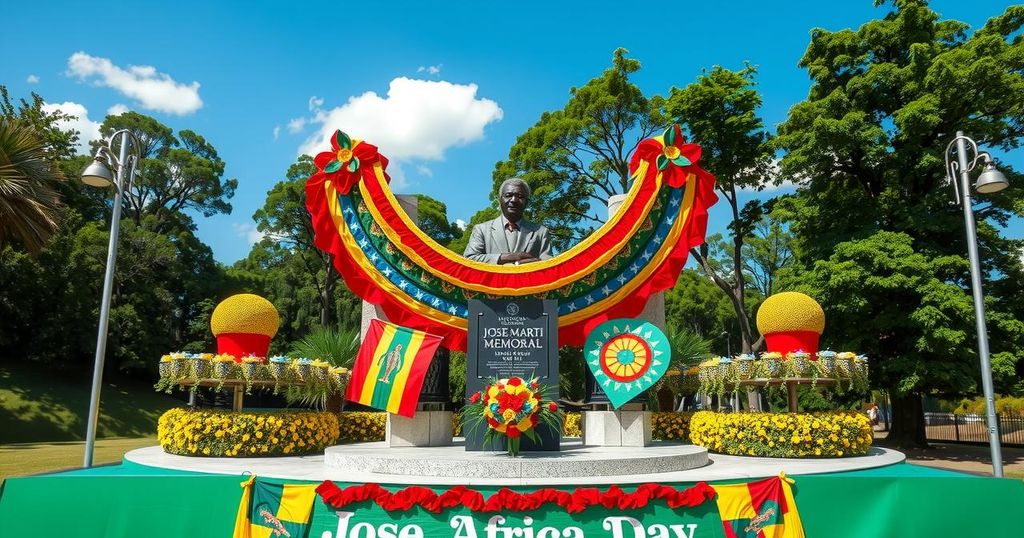Cuba commemorated Africa Day on May 25 with a ceremony at the Jose Marti Memorial. Key figures, including Vice President Salvador Valdes Mesa and Foreign Minister Bruno Rodriguez, emphasized Cuba’s historical ties to Africa, celebrating diplomatic anniversaries and expressing a commitment to international medical cooperation. The ceremony also honored shared struggles against oppression and underscored Cuba’s ongoing support for Africa.
In Havana, Cuba marked Africa Day on May 25 with a significant ceremony held at the Jose Marti Memorial. Senior officials from the Cuban government attended, including Salvador Valdes Mesa, the Cuban Vice President, and Bruno Rodriguez Parrilla, the Minister of Foreign Affairs. They were joined by Teresa Amarelle Boue, Secretary General of the Cuban Women’s Federation, and Rosalie Kama Niamayoua, the Congolese ambassador and dean of the African Diplomatic Group in Cuba.
During the observance, Valdes Mesa spoke eloquently about the importance of this year’s celebrations, coinciding with anniversaries of diplomatic relationships established with numerous African nations. He emphasized the need to recognize Cuba’s historical ties rooted in the struggles for sovereignty and independence, describing it as a fulfillment of a “historical debt” to Africa.
He also underscored the solidarity formed during the battles against colonialism, racism, and apartheid, highlighting the legacy of Fidel Castro. Valdes Mesa portrayed the everlasting bonds of friendship created in combat where Cuban and African forces fought together for dignity. He took a moment to honor those who once revolted on sugar plantations and the heroic mambises who opposed Spanish colonialism, reminding attendees of the past struggles.
The vice president reflected on the escalating threats to international medical cooperation, reiterating Cuba’s commitment to health initiatives across Africa. There are currently healthcare programs active in over 27 countries on the continent, with more than 10,000 graduates from Cuba’s Latin American School of Medicine (ELAM).
Niamayoua, for her part, acknowledged Cuba’s unwavering support for African liberation movements. She noted Fidel Castro’s enduring influence and the shared values between Cuba and Africa in international discussions about pressing issues today.
May 25 is a day of global celebration, representing the cultural diversity and resources of Africa, while also highlighting the continent’s commitment to creating a united and prosperous future. In Cuba, this observance crystallizes the deep legacy of kinship with African nations, firmly cementing ongoing collaboration and support.
In summary, the Day of Africa ceremony in Cuba serves as a poignant reminder of historical ties and commitments to supporting the African continent. By reaffirming solidarity born from shared struggles, Cuba continues to champion partnerships that promise mutual growth and development.
Cuba’s celebration of Africa Day reflects deep-rooted historical ties and ongoing commitments to solidarity with African nations. The event emphasizes Cuba’s contributions to the fight against colonialism and reaffirms its dedication to international medical assistance and collaboration, highlighting the importance of these relationships for both cultural recognition and sustainable development.
Original Source: www.cubanews.acn.cu






